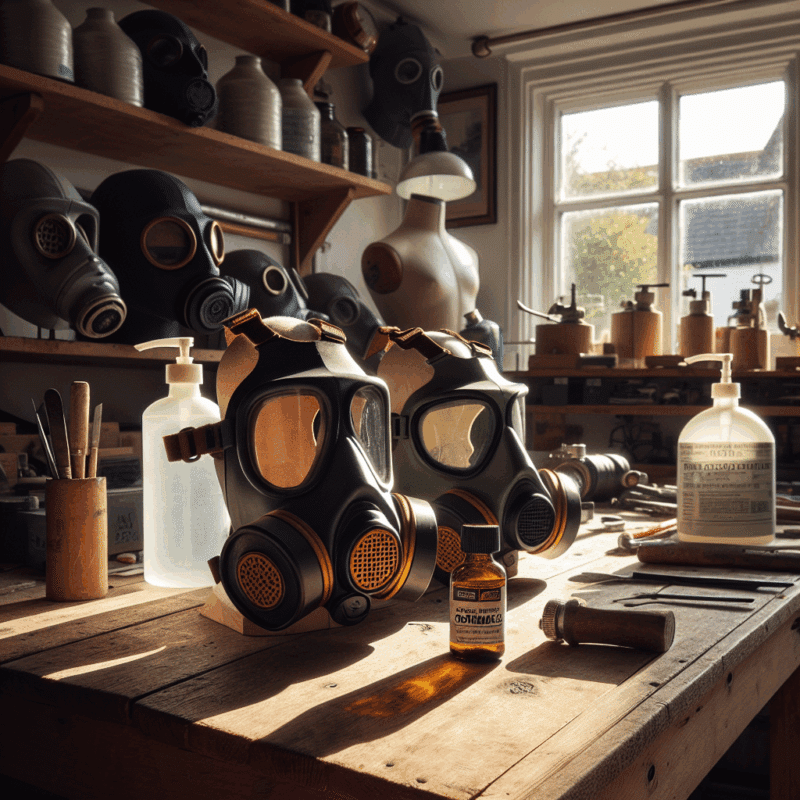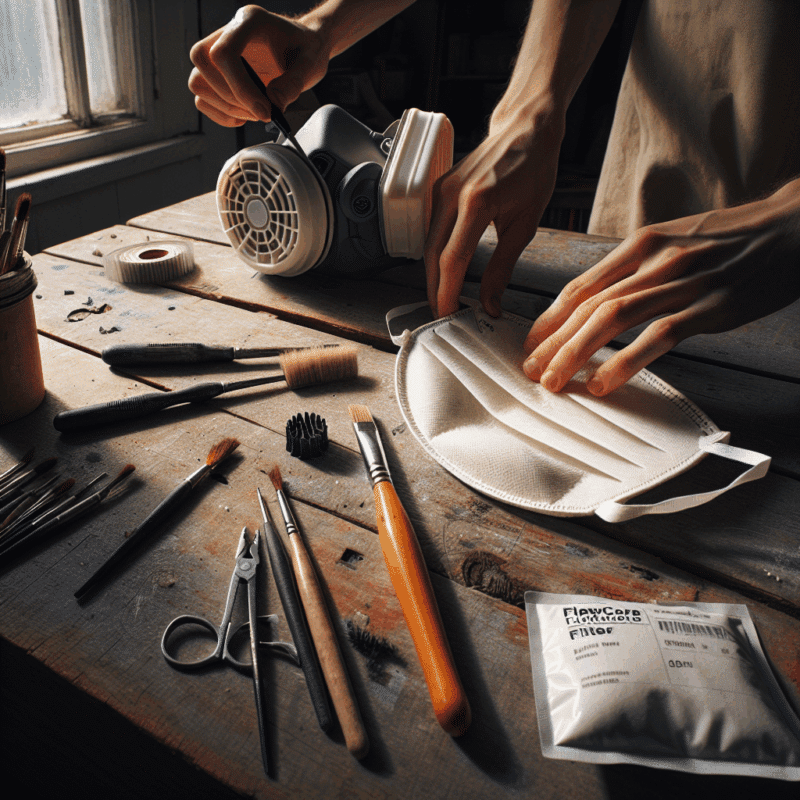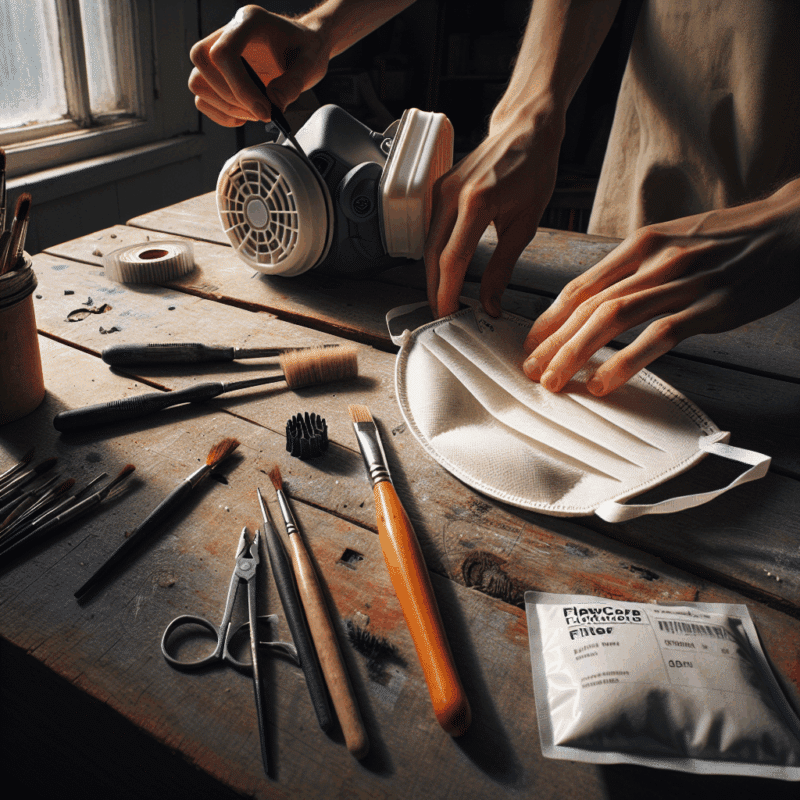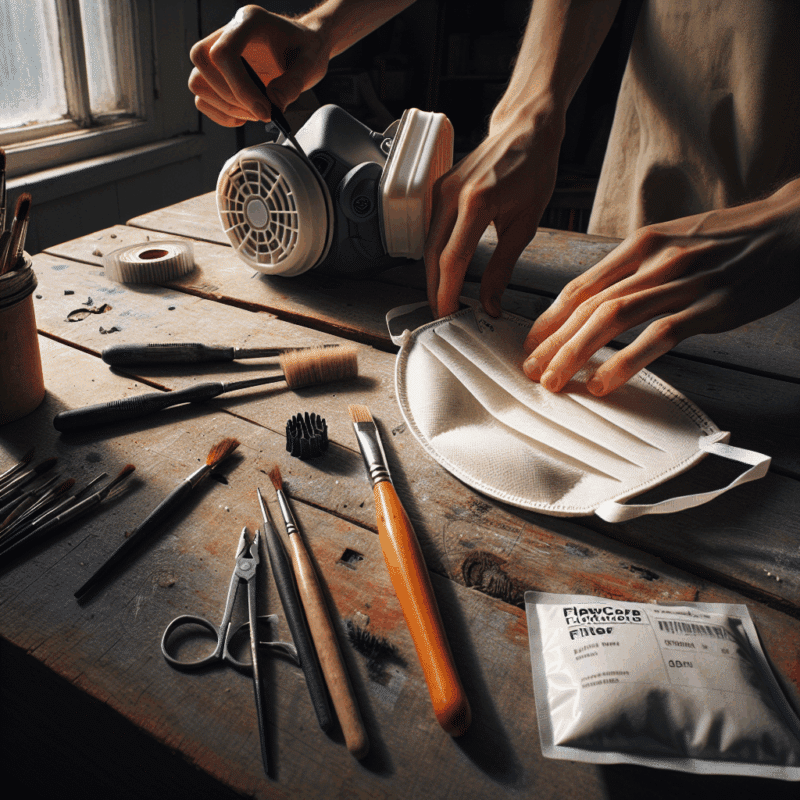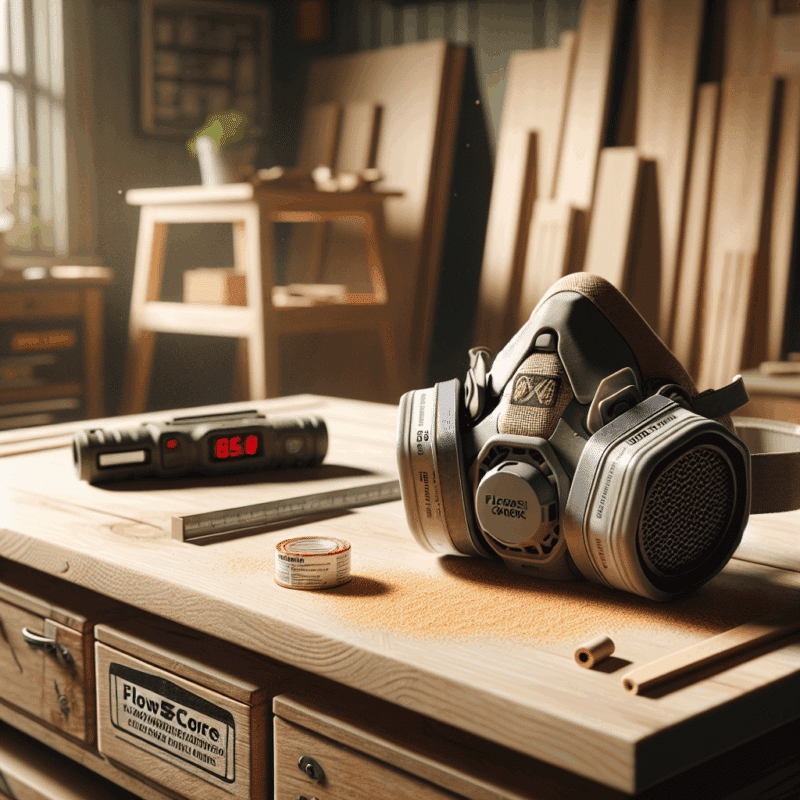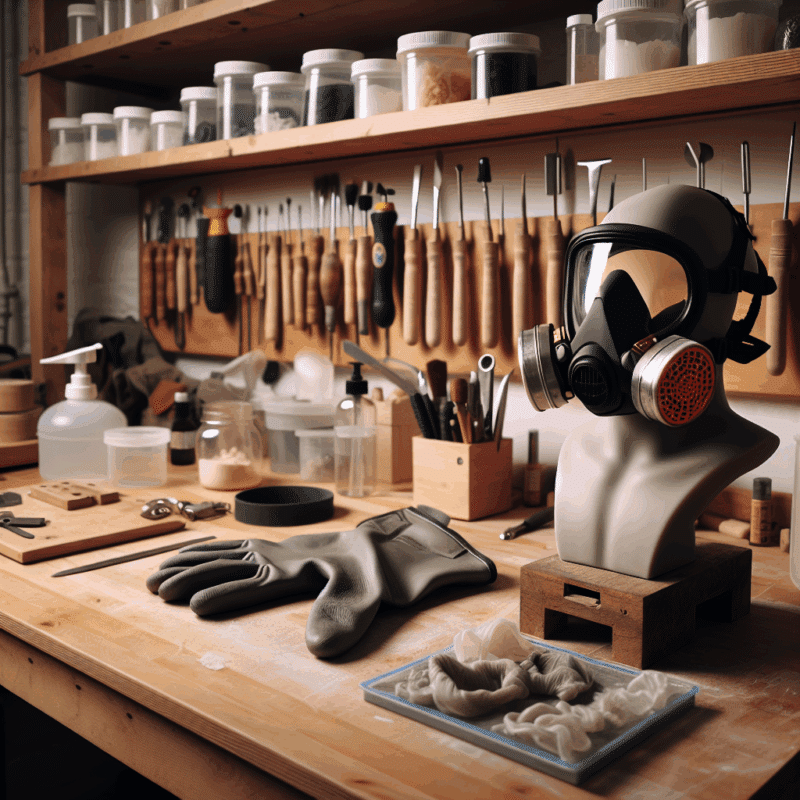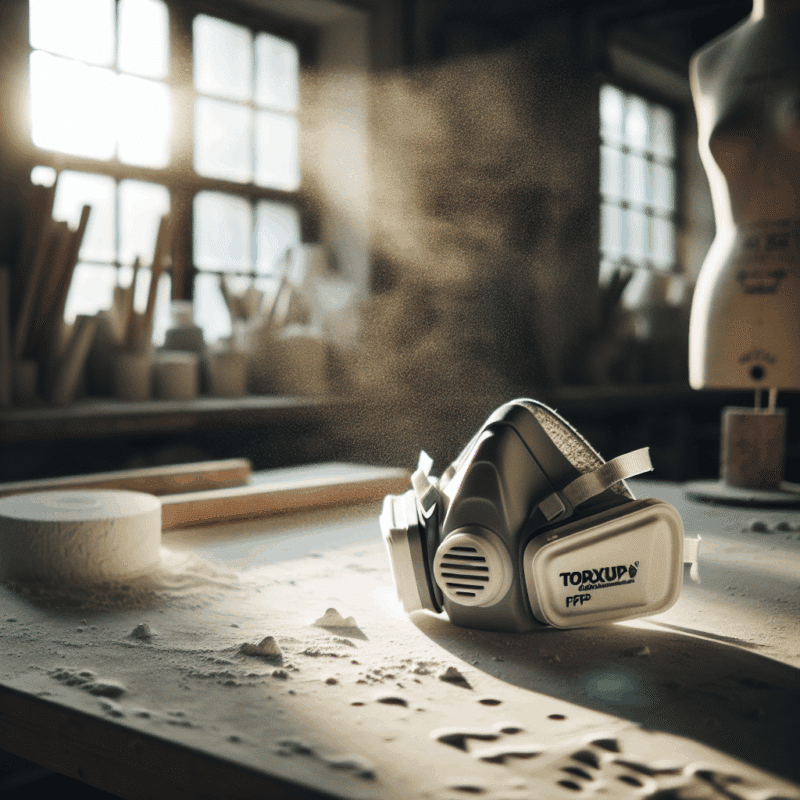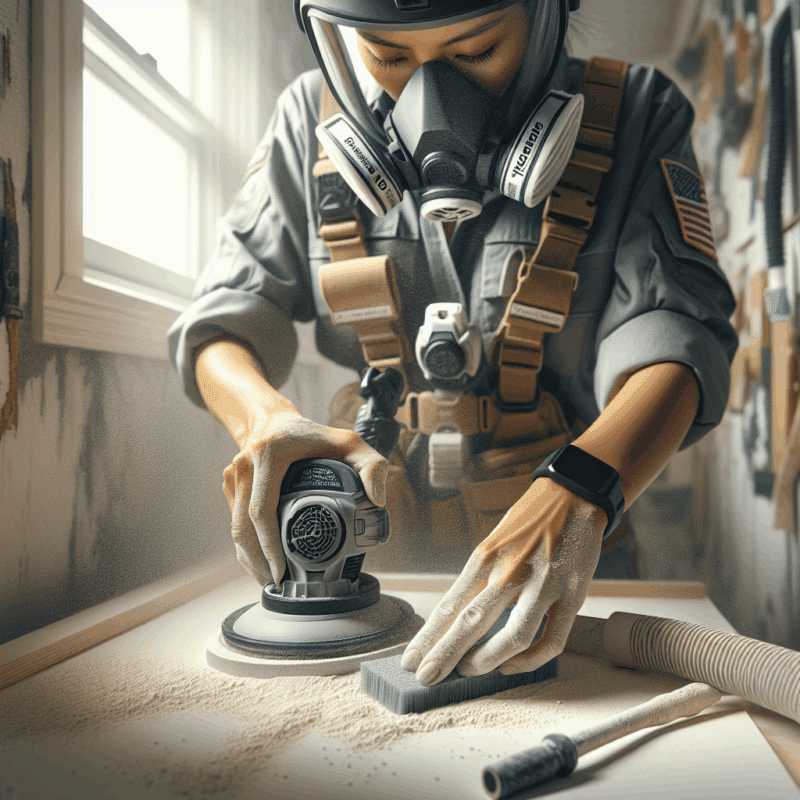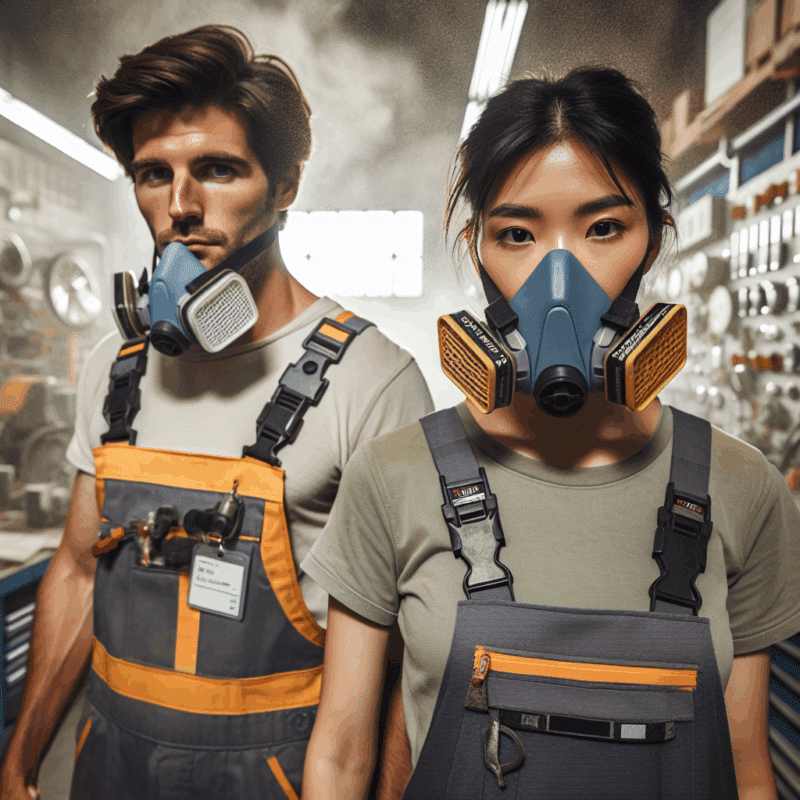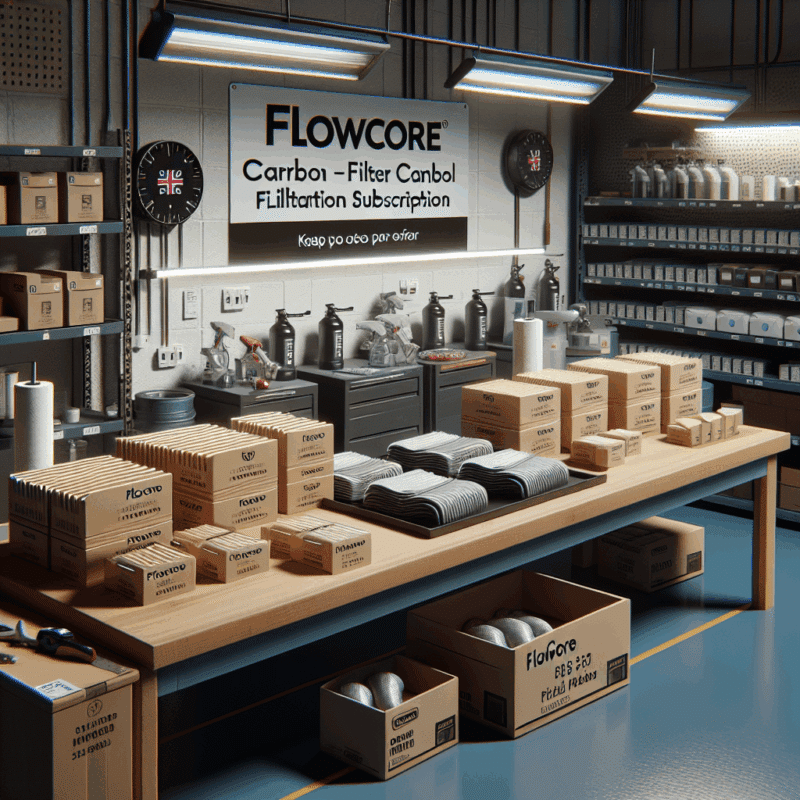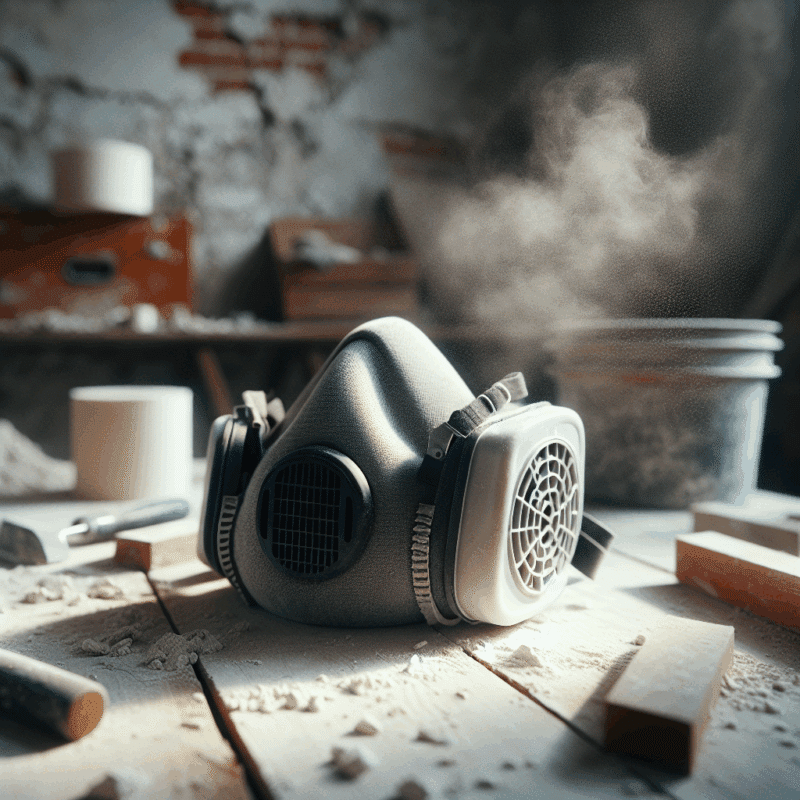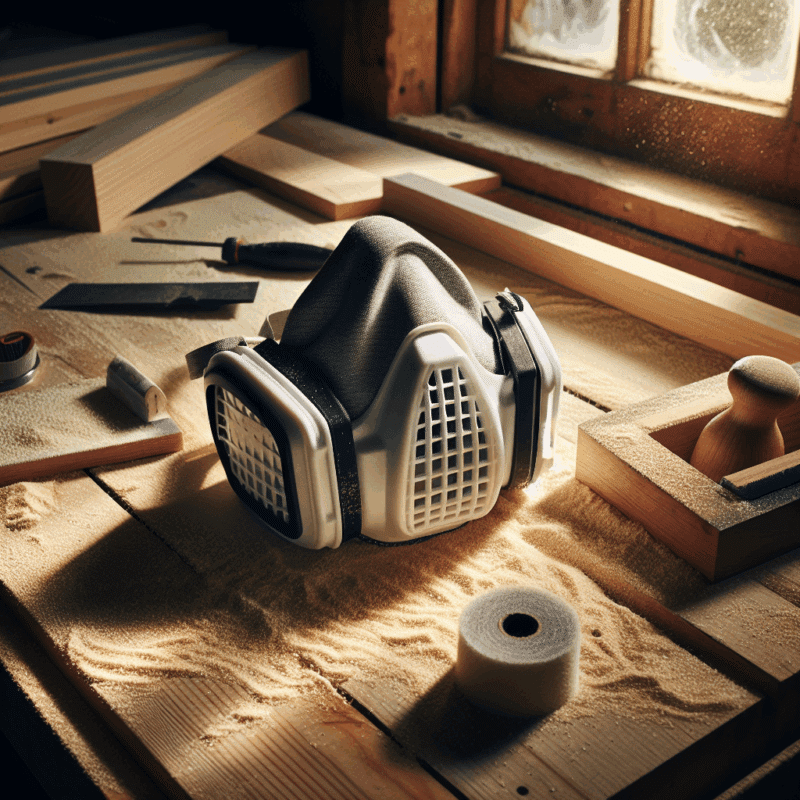Best Filter Choice for Hobby Resin: FlowCore plus ProDefend Guide
In This Article
- Use dual-stage filtration to protect against resin dust and vapours.
- FlowCore filters capture micro-particles efficiently.
- ProDefend neutralises toxic VOC emissions from resin.
- CoreMask respirators improve seal and long-term comfort.
- Replace filters based on smell detection and usage hours.
- Combine masks with HEPA + carbon air purifiers for best results.
- Budget-friendly entry-level masks can still offer basic protection.
- Verify filter compatibility for performance and safety.
Understanding Resin Airborne Risks
What makes resin dangerous to breathe?
When working with photopolymer resin—common in 3D printing and model-making—it’s easy to underestimate the associated health risks. However, inhaling fumes or micro-particles from uncured resin can have serious consequences. The best resin filters are designed to block both the fine particulate matter produced during printing and sanding, and the vapours emitted as volatile organic compounds release into the air. VOCs, which include chemicals like formaldehyde, toluene, and other aromatic hydrocarbons, are easily absorbed into the bloodstream through the lungs.
Respiratory exposure to resin can lead to headaches, dizziness, skin irritation, or even long-term respiratory ailments. The ultra-fine dust from post-processing tasks like sanding or grinding cured resin poses an added risk, as these can pass deep into the bronchial system. While hobbyists may attempt to mitigate these risks with simple ventilation, this is often insufficient. Therefore, understanding the science behind airborne resin contaminants is essential for selecting the best resin filters for your workspace.
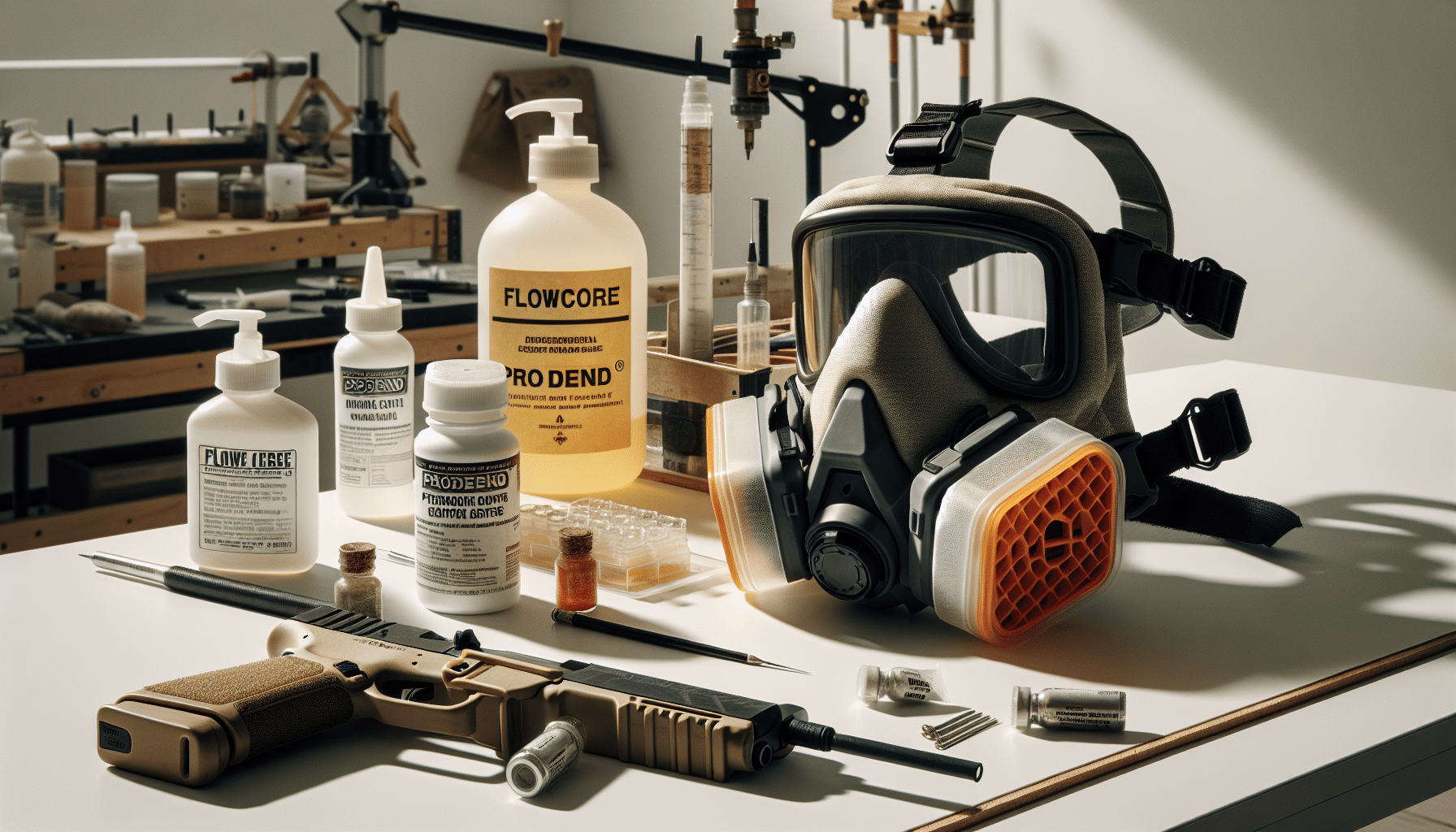
Why You Need Dual-Stage Protection
Particulate vs Vapour threats
To be truly effective, a filtration layout must manage both solid and gaseous pollutants. Particulate threats include resin dust and micro-fragments—a concern during sanding, filing, or removing support structures from printed resin models. Standard particulate filters, like FlowCore, are engineered with electrostatically charged fibres that capture particles down to 0.3 microns.
On the other hand, vapour threats arise from uncured resin emitting VOCs. These cannot be captured by particulate filters alone. This is where chemical cartridges, such as ProDefend, come into play. These cartridges use activated carbon or specialised sorbents to adsorb and neutralise harmful gases. Without addressing both particle and vapour threats, hobbyists are left exposed. Therefore, the best resin filters provide dual-stage defence against these very different airborne hazards.
“Never rely on just a dust mask for resin work. Proper dual-stage protection is critical for long-term health.” — Certified Occupational Hygienist
FlowCore: First-Line Resin Dust Protection
Efficient filtration for micro-particles
The FlowCore filter is specifically engineered to offer top-tier performance against resin dust. This particulate filter features a high-efficiency electrostatic design, capturing up to 95% of particles down to 0.3 microns, including those generated during support removal and sanding of cured resin. Its pleated structure creates a larger surface area, which enhances airflow while maximising filtration capacity. For hobbyists working in confined indoor spaces without industrial extraction, FlowCore provides an effective barrier against dust saturation.
Moreover, FlowCore performs consistently across a range of ambient temperatures and humidity conditions. The filter fits seamlessly into half-face and full-face respirators designed for modular configuration, making it a flexible and essential first layer. As part of the best resin filters for particulate protection, FlowCore should be your go-to for any task involving mechanical resin post-processing.
ProDefend: Blocking Hazardous VOCs
Activated carbon filter advantage
Complementing FlowCore is the ProDefend VOC-compatible cartridge. This filter uses high-adsorption activated carbon granules housed in a gas-phase filtration matrix. The structure is fine-tuned to neutralise harmful resin vapours—including methyl methacrylate, styrene, and other chemical components found in commercial photopolymer resins. Activated carbon works by trapping gas molecules through molecular adhesion, effectively reducing odours and, most importantly, exposure.
ProDefend meets industrial-grade filtration standards, but its footprint is compact enough for use in hobby environments. Unlike many general-purpose chemical filters, ProDefend is rated specifically for resin-derived VOCs and delivers consistent performance over dozens of hours of exposure. If you’re serious about safety, pairing FlowCore with ProDefend represents an intelligent, balanced approach. Combined usage ensures you’re covered across the full spectrum of airborne resin irritants—making this duo among the best resin filters on the market today.
Combining Filters in a CoreMask Respirator
Optimising comfort and seal fit
Using both FlowCore and ProDefend filters requires a compatible respirator platform. Enter the CoreMask—an ergonomic, modular system designed for hobbyists and professionals alike. It accepts both filters in a side-by-side configuration, ensuring full-spectrum protection without sacrificing breathability. The skin-safe silicone facepiece is engineered for long sessions, maintaining a secure seal even when users move, talk, or sweat.
Proper sealing is critical. Leaks not only reduce the filter’s effectiveness—they can redirect unfiltered air straight into your lungs. The CoreMask uses adjustable dual-headbands and snap-lock filter mounts to guarantee correct tension and alignment. Moreover, filter orientation is key: particulate filters should always precede vapour cartridges in the airflow path to avoid clogging the activated carbon prematurely. This setup exemplifies how the best resin filters must be matched with equally competent hardware in order to deliver full protection.
Fitting and Maintaining Filters Properly
Tips to prevent resin odour breakthrough
Even top-tier filters like FlowCore and ProDefend can fail prematurely if not installed and maintained correctly. Always inspect for a snug seal when inserting filters into your respirator, and perform a basic pressure test by covering the inlets and inhaling gently. If the mask collapses slightly and you feel no inward leaks, the seal is secure.
Resin odour breakthrough is a sign that your ProDefend VOC cartridge is saturated. This doesn’t mean the filter failed, but rather it’s done its job and needs replacement. Storing filters in an airtight bag between uses can extend lifespan by reducing passive degradation. Also, never blow compressed air through a filter or try to wash it—this damages the internal structure irreparably. Staying on top of filter maintenance ensures the best resin filters keep performing reliably across multiple projects.
How Often to Change Filters for Resin Projects
Usage frequency and smell indicators
Filter replacement frequency varies based on several factors, including duration of exposure, resin type, and environmental ventilation. Generally, a FlowCore filter can be used continuously for up to 40–60 working hours before clogging reduces airflow noticeably. For ProDefend, you should monitor for the return of resin odour—even faintly—as this signals carbon saturation and imminent filter failure.
Keep a logbook for heavy usage sessions to track filter hours. This is especially helpful if you’re running daily prints or using multiple resin types. For those printing occasionally, changes every 30 days may suffice. Regardless, it’s wise to replace both filters any time you begin to detect smell through the mask, lowering your risk of overexposure. This vigilance is what separates adequate protection from truly using the best resin filters effectively.
Community Insights: FlowCore vs ProDefend?
Real feedback from hobby crafters
The maker and cosplay communities have strongly endorsed both FlowCore and ProDefend, citing them as the best resin filters currently suitable for non-industrial settings. Multiple users on forums such as Reddit and hobbyist Discord groups noted unprecedented comfort and clarity when switching from generic dust masks. According to a recent user poll from a leading resin printer community, 87% of respondents reported fewer symptoms—such as rhinitis, coughing, or headaches—after adopting dual-stage filtration.
Many also appreciated the interchangeability and availability of replacement cartridges through local and online retailers. One user commented, “FlowCore blocked all the nasty dust from my wet sanding. Paired with ProDefend, I worked seven hours with zero throat irritation.” Genuine user feedback continues to shape the reputation of these systems, reinforcing why they’re broadly viewed as the best resin filters in 2024. Learn more about Resin and Airborne Hazard Protection
Beginner Mask Choices on a Budget
Entry-level tips to stay safer
Not every hobbyist is ready to invest in professional-grade gear from day one. Fortunately, there are more affordable routes to increase resin safety. Entry-level respirators compatible with P100 particulate and basic organic vapour cartridges are available from several manufacturers. While they may lack some ergonomic finesse, they can accommodate third-party FlowCore-equivalents and remain compliant with essential filtration standards.
Stick to known brands that offer replaceable filters and avoid fixed-filter masks where changes aren’t possible. Ensure a good facial seal and check for NIOSH or CE certification marks to guarantee basic performance. As you progress, upgrade components incrementally. Investing in your respiratory health is always a wise long-term choice—especially because resin fumes can accumulate insidiously over time. Educating beginners on the best resin filters helps them avoid harmful pitfalls from the very start. Read a related article
Alternative Indoor Air Strategies
Supplementing with air purifiers
While personal protective gear is irreplaceable, you can further enhance air quality with well-selected indoor purification systems. Air purifiers equipped with dual HEPA and activated carbon filters offer an essential backdrop to mask-based filtration. These devices can remove ambient VOCs and micro-particle buildup from enclosed workspaces, making them ideal supplements to FlowCore and ProDefend systems.
When choosing an air purifier, ensure it’s rated for space size and includes real-time VOC sensors. Models from brands like IQAir and Austin Air have proven effective in laboratories and hobby setups alike. Remember that purifiers never replace masks—they only reduce general room contamination. The best resin filters go on your face, but strategic air management completes a multi-layered safety protocol. insights on filters for resin and VOCs multilingual content guidance for compliance
Conclusion: Best Filter Setup for Resin Hobbyists
In the evolving field of hobby resin work, safety should never be an afterthought. Exposure to harmful dust and vapours could lead to chronic respiratory issues, headaches, and more. Selecting the best resin filters is the most critical step in your personal protective plan. The FlowCore filter offers industry-leading particulate performance, while ProDefend neutralises dangerous VOC vapours efficiently. Coupled with the CoreMask system and maintained correctly, this dual-filter setup provides long-lasting and comfortable defence.
By following these practices—including understanding when to replace filters, maintaining a reliable seal, and optimising air quality—you’ll drastically reduce your exposure risks. Whether you’re just starting out or upgrading your safety gear, investing in the best resin filters represents both a protective and productive choice. Your lungs will thank you.
Great guide on filter-choice-hobby-resin-flowcore-prodefend – Community Feedback
What filters are recommended for hobby resin work?
A combination of particulate and activated carbon filters is ideal. FlowCore captures airborne resin dust, while ProDefend tackles vapours and VOCs, providing thorough protection for hobby resin projects.
Why use both FlowCore and ProDefend filters together?
Resins release both particulate dust and volatile organic compounds. FlowCore tackles fine particles, while ProDefend’s carbon layer captures hazardous vapours, covering the full range of hazards in resin craft.
How often should I change my mask filters for resin?
Change filters when breathing resistance increases or notice odours breakthrough. For frequent resin use, check and replace FlowCore and ProDefend filters regularly, following manufacturer recommendations.


